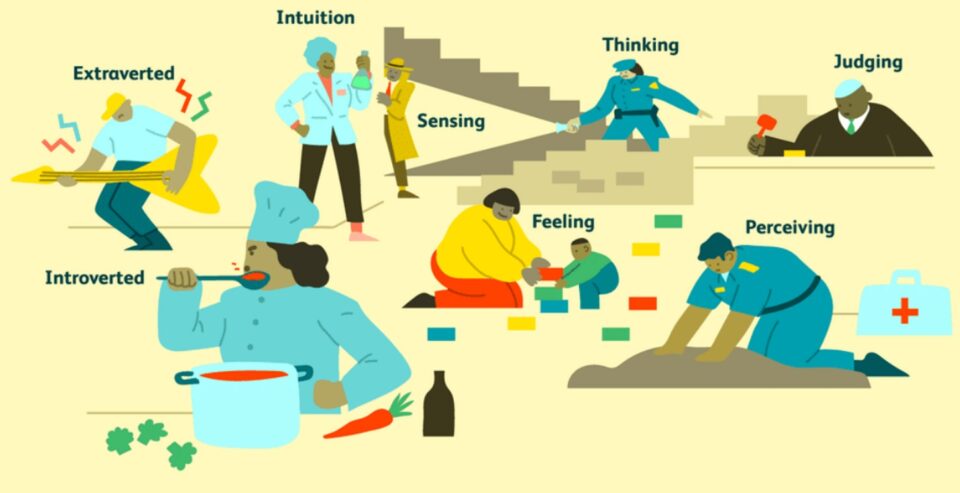An Altar From The Fragments

"An Altar from the Fragments"
Rev. Tony Larsen
Aug. 23, 2020
The opening words are from Anne Scott, in her book Serving Fire:
"I have always been fascinated by the compost pile just outside our garden. It contains bits of old food, thick and gnarled weed roots, rotting flowers, egg shells. It seethes with life. Over time, with moisture and heat, this decaying pile of unwanted organic matter becomes sweet-smelling, fertile, crumbly compost. And so it is with the discarded parts of ourselves that we have swept under the carpet. Under the watchful eye of the self-observer, all that we have rejected, denied, and hidden, is exactly what can nurture our growth." For the light available in the compost of our lives, we light this chalice flame.
*****************************************************************************************
The Sermon: "An Altar from the Fragments"
Every once in a while I come across a saying that I think might make a good sermon title. One that I saw recently on a church marquee said: "When Your Dreams Turn to Dust, Vacuum." This message seems to be saying: When things don't turn out the way you hoped, get rid of the clutter and start over.
Now, I'm not sure that hearing that--after my dreams had been shattered--would actually perk me up; but I suppose it could, at least if enough time had elapsed so that I could process my grief. But really, what do you do when a cherished dream you have held for a long time disintegrates right in front of you, and there's nothing you can do to put it back together? Do you finger the fragments and keep thinking of what might have been? Do you sift the dust through your fingers and say, "Why me? I don't deserve this?" Or do you say, "I'm not going to waste my time on something I can't do anything about anyway--so where's the vacuum cleaner?"
It's an interesting question--but not the only one you could ask. So let's go to another saying that I came across recently with a slightly different metaphor: "Build an altar from the broken fragments of your heart." This idea is similar to the first in that it does suggest moving on after dreams have been shattered--but it differs in that it doesn't suggest vacuuming up the broken pieces, as if they could be tossed away and forgotten. Rather it says to use them to build something new, something precious. Is that really possible? Can you actually use the fragments of broken promises, broken dreams, broken trust, broken hope--to create an altar of beauty? I think you sometimes can. An example that comes to my mind is from an article I read in our denominational magazine, The UU World, some years ago (April 2004). It was a piece on restorative justice. (Restorative justice refers to getting the offender and the victim together when possible so that they can both understand the impact of the crime from the other person's perspective.)
Here's the story. A man named Gene Workman was on his way to work in Sterling Heights, Michigan early one morning in May of 1997. He happened to be stopped at a red light when a pick-up truck behind him crashed into him, ramming his car 300 feet ahead--breaking his neck, tearing his aorta and, when they got him to the hospital, leaving him brain-dead. The next day he was taken off life support and died.
The man driving the pick-up that killed Gene was a 21-year-old guy who had fallen asleep at the wheel after a night of heavy drinking. His name was Todd Williams, and he was unhurt--and actually had no memory of what had happened. (All he could recall was his airbag exploding in his face.)
The man who was killed--Gene Workman--left behind a wife and eight children. His wife, Barbara Workman, was angry beyond belief at what had happened, and at the fact that Todd had to serve only one year in prison. "I wanted to get even with this man who took Gene's life, and my life," she said. "I wasn't grieving, I was dying. Todd served a year and got five years’ probation. I felt he should spend the rest of his life in prison. I needed to meet him face-to-face so he could understand how much he took from me, what it's like to have your whole life in a casket before you." So she asked that, as part of his restitution, Todd speak out publicly on the dangers of drunk driving. "Nothing could ever bring Gene back," she says. "But if people could hear Todd's story, another life might be spared. (But) Todd's mother was upset. 'How can you ask this of my son; he's very introverted,' she told me. 'He can't stand up in front of people and talk.' So I offered to go on the lecture circuit with him, which we did for four years. Restorative justice helped me to stop seeing Todd as a nightmare who'd taken over my life, and to forgive him. It saved my sanity."
You see, Barbara Workman, through her work with Todd, was able to deal with the tragedy of losing her husband--by creating an altar that would help other people. Creating that altar also helped her, by helping her to let go of her resentment at her husband's killer.
Now, I'd like to respond to a few objections that may be rising to your lips (and have certainly risen to my own lips a number of times). One is this: If you say I can build an altar from the broken fragments of my heart--does that mean I have to? Can't I just wallow in my self pity for a while; can't I handle the fragments--pass the ashes through my fingers, as it were--and rant about the injustice of it all? Do I have to forgive my oppressor?
My answer would be this: It's OK to wallow--it's a normal part of the grieving process. (You know, denial, anger, bargaining, etc.) Anger can be important. But remember also that anger, when it's unchanneled, is just one letter away from... danger. When anger is not channeled properly, it can be danger-ous--to the person who has it and to the people around that person.
So, no, you don't have to try to build an altar out of the fragments of your life. But...what else are you going to do with them?
Another objection one could raise is this: Does building an altar out of our tragedies...amount to blessing the tragedies--does it amount to saying, "I'm glad they happened, because something good came out of them?" No way. Although Barbara Workman was able to build something holy out of what happened, that doesn't mean the good outweighed the bad, or made it worthwhile, or was somehow "meant to be." It only means that she was able to create something better than there would have been if she hadn't done this work. In other words, Barb Workman created something good and holy, but that doesn't mean it balanced out the tragedy. I'm sure if she had her druthers, she'd rather the accident had never happened. But, given that it did, she made something better than might otherwise have been.
One more question that could be raised about all this: Can you only build an altar out of the fragments of bad things that have happened to you--or can you build an altar out of the tragedies that you had a hand in creating? In other words, can you make something holy out of your own bad judgment? I think you can. (I'm reminded of the old saying: Good judgment comes from experience. And experience often comes from bad judgment.)
So consider Todd Williams, the young man who caused the accident. The article didn't discuss his thoughts on the experience, but one can imagine that he must have felt a lot of guilt and regret at having killed someone through his own irresponsibility; and maybe he even silently agreed with the man's wife that the sentence he'd been given was way too light. (One year in prison, five years’ probation, while he's still young and alive, and the victim of his drunk driving will never see his children again. And they will never have their father again.) Todd was, no doubt, in anguish too. Granted, he's a victim more of his own bad judgment than of anyone else's. But his life has been broken too, in a way--in that his dreams of where he would be at this time in his life have been lost, and his image of himself as an essentially good human being has been tarnished. So his world has been broken too. Not in the same way, or to the same extent as Barbara Workman's. But broken nonetheless. And, through his public speaking with the wife of his victim, he too has begun to build an altar from the fragments of his life.
My point here is only this: that those who have been hurt--and those who have done the hurting--can both build an altar from the tragedies that they've either witnessed or participated in. This does not mean that they are both equally deserving of our sympathy, of course. It means only that both can--if they want to, badly enough-- make something precious out of the broken pieces of their lives.
Now, at some level almost everyone knows this, at least theoretically. That's why there tend to be so many stories in newspapers, journals, self-help books, etc. about people who have risen above their humble beginnings--or their challenging disabilities--to do something significant. Consider this story about the great violinist Itzhak Perlman. Here it is, from an article in The Houston Chronicle (February 10, 2001):
"On November 18, 1995, Itzhak Perlman, the violinist, came on stage to give a concert at Avery Fisher Hall at Lincoln Center in New York City. ...To see him walk across the stage one step at a time, painfully and slowly, is an unforgettable sight. He walks painfully, yet majestically, until he reaches his chair. Then he sits down slowly, puts his crutches on the floor, undoes the clasps on his legs, tucks one foot back and extends the other foot forward. Then he bends down and picks up the violin, puts it under his chin, nods to the conductor and proceeds to play.
"By now, the audience is used to this ritual. They sit quietly while he makes his way across the stage to his chair. ...But this time, something went wrong. Just as he finished the first few bars, one of the strings on his violin broke. ...People who were there that night thought to themselves: 'We figured that he would have to get up, put on the clasps again, pick up the crutches and ...either find another violin or else find another string for this one.'
"But he didn't. Instead, he waited a moment, closed his eyes and then signaled the conductor to begin again. The orchestra began, and he played from where he had left off. And he played with such passion and such power and such purity as they had never heard before. You could see him modulating, changing, recomposing the piece in his head. ...When he finished, there was an awesome silence in the room. And then people rose and cheered. ...He smiled, wiped the sweat from his brow, raised his bow to quiet us, and then he said, not boastfully, but in a quiet, pensive, reverent tone, 'You know, sometimes it is the artist's task to find out how much music you can still make, with what you have left.'"
Since that article was written in 2001 there have been many references to it, and a Jewish rabbi even wrote a poem about it. (I have found this story in many places myself.) It's a very inspiring story. There is one little problem with it, though: It probably didn't happen. Extensive research has been done to find out when it happened, where it happened, and if it happened. There's absolutely no evidence that it did. This is disappointing at one level, because we want to believe in stories like that. Yet the fact that this story has made its way into countless books, articles (and sermons!) shows that, at some level, we all understand its deeper truth--that we often can make something beautiful with the fragments of our broken dreams. Which is why Ernest Hemingway once wrote: "The world breaks everyone, and afterwards, many are strong at the broken places." (Note: He doesn't say all are strong--just many. You don't have to make an altar from the broken fragments of your heart--it is a possibility.)
This is also why Hector Aristi-zabal, who was born in Medellin, Columbia, and was, as a young man, tortured for suspicion of being anti-government--and who now works as a therapist with torture survivors, gang members, prisoners, and others in Pasadena, California--often quotes the African saying, "The blessing is next to the wound." He says, "Anytime you go through a difficult ordeal, it can awaken inner resources. I have tried to recast the experience of being tortured as an initiation experience. In a traditional society, initiation marks the end of your old life and the beginning of something new. And when the initiation ordeal is over, (then) if you survive, you come back into the community with a gift of knowledge to share. During the dirty war in Columbia, when my friends were being shot dead all around me, my goal was just to survive. But after I was tortured, my goal changed. It was not just to survive, but to live a meaningful life. Sometimes, in the ordeal, we find the seeds of our identity." The blessing is next to the wound; and many are strong at the broken places.
Now, I suppose I could end my sermon here, and you could take my message to be: No matter what bad things have happened to you--or that you have done--it is possible to build something holy from that. (And that's fine. Feel free to stop reading here if you like.)
But I would actually go farther and say: Every altar you build--every altar you have ever built, every altar you will ever build--is made from broken fragments. Even the ones that seem to be constructed on success and happiness. We don't always realize this because sometimes the broken fragments aren't actually in our lives--they're in other people's. For example, the closest thing I have ever had to a religious or spiritual experience--the thing that really motivated me to devote my life to a higher calling--happened to me when I was in college. That's when I first started learning about world hunger. When I heard about children starving to death in Africa and India, and I read about poverty in what we called at that time "the third world"--I was very moved to do something to help. I was incensed at the fact that we in this country have so much, and people in other parts of the world have so little. It just didn't seem fair. So I read everything I could on the subject, and participated in rallies and hikes for hunger. Later, I began to see social-justice issues in our own country--poverty, racial prejudice--and the war in Vietnam.
I couldn't give you a single date, or a particular moment, when this powerful experience happened to me--it was more gradual and long-term than that--but I do know that if I ever had a religious experience, it had to do with an awareness of social justice, and of my need to be a part of what the Jewish tradition calls "tikkun olam," which is Hebrew for "repairing the world." Tikkun olam.
And I'd have to say that repairing the world is still at the heart of my spirituality. Helping the oppressed and downtrodden, working for justice and equity (and doing that while respecting the inherent worth and dignity of every person, including the ones who fight me on it!)--that's the platform that holds up the altar of my life. And it is, in effect, made of broken fragments. Not my own, so much as other people's. But broken fragments nonetheless. Every altar is built on these, I believe. Even the ones that appear to be built on happiness or success or beauty. Look carefully, and you'll see that broken pieces are helping to hold it up.
If you care about peace, for example, isn't it at least partly because you know something about war and conflict? If you care about civil rights, isn't it because--at some level--you understand the unfairness of being judged by the color of your skin or your culture or religion or gender? And if healthcare is your passion--isn't it because you know something of illness and wounds? And if you try in your life to be a good listener, or to help people in trouble, isn't it because you understand what it means to be broken--either through your own personal experience or through witnessing it in others (and most likely both)? It's like what I heard from another UU minister (the Rev. David Owen-Quill). He says one day he found his son turning a flashlight on and off in the middle of the day. Click, click. And his son said, "I don't see the light, Daddy." And David answered, "That's because you're in a place of light. You can only see it in the darkness." "Well, Dad, let's go find some darkness so we can see it." You need to experience the darkness in order to see the light. (Which is also why we never see stars during the day.)
So yes, every altar (I think) is built on some broken pieces--even the altars that appear to be created out of pure joy and fulfillment. That's because success and happiness are always inextricably intertwined with sadness and brokenness. They always are, always have been, always will be. As the Dao-de-Jing reminds us: "We only know what's good, if we have bad to compare it with. We see the beauty in the world only because there is ugliness." (Dao-de-Jing 2) Success and happiness only make sense when we understand failure and suffering. I mention this because when bad things happen (either to us or by us) we don't generally want to use them to build an altar. We'd rather build altars out of our successes and our happiness. But when we begin to realize that even those altars are built on brokenness of some kind (if not our own brokenness, then other people's)--then we don't have to look at our "tragedy" altars as some exception to the rule--but see them as particularly poignant examples of what happens all the time. All our altars are made from broken pieces. And the things that look bad now may be useful someday. This is why I like the expression "building an altar from the fragments" a little more than "when your dreams turn to dust, vacuum." Because it reminds me that tragedy and hardship are never things I can just vacuum away as if they never existed. They are, rather, building blocks for the temple I am creating. And since my story isn't over yet, I could be surprised at how it turns out.
I leave you with this story:
The only survivor of a shipwreck was washed ashore on a small uninhabited island. She prayed for God to rescue her, and she looked out at the horizon every day to see if a rescue ship might be coming, but it never did. Finally she built a little shack out of driftwood and shells, just to protect her from the elements, and to store the few possessions she still had left. But one day, after she got back "home" from looking for things to eat, she saw her hut was on fire, with smoke billowing up into the sky. She was at the end of her rope and cried out, "God, how could you let this happen to me, especially after everything else that's happened?" Well, she had to sleep out in the open air that night, without any possessions other than the wet and torn clothes she had on. But the next morning she saw a ship coming to rescue her. She was ecstatic and asked the ship's captain: "How did you know I was here?" And he said, "We saw your smoke signal."
You just never know.
Closing Words:
There's a Jewish story about a student reading the Torah, and he comes to Deuteronomy 6:6, which says, "And these words, which I command you this day, shall be upon your heart." And the student asks the rabbi, "Why is it said this way? Why are we told to put these words upon our heart, instead of in our heart?"
The rabbi says, "It is not within our power to place divine teachings directly in our hearts. All we can do is place them on the surface of the heart. Then, when the heart breaks, they will drop in."
******************************************************************************************
Folks, I don't wish you any more heartache than you have already suffered. But I do wish for you a chance to let whatever heartaches you've had (or will have) fall in. Open your heart just enough to let something holy drop in.
This service has ended; your service has just begun.
Peace and unrest.



